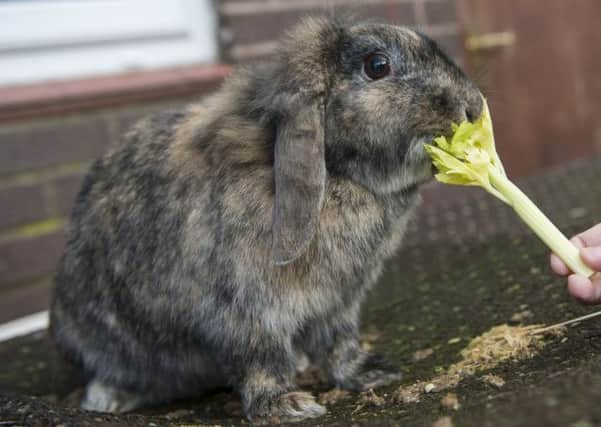Animal surgery with Stuart Cooke: Make your hutch a happier home


Summer is always a popular time for people to welcome new pets into their lives so this week we’ll turn our attention to settling in a new rabbit.
Before you bring your rabbit home it is advisable to spend some time ‘bunny proofing’ their intended living area. You will need a hutch with as much room as possible and a run if garden facilities are unavailable. It is possible to keep your new rabbit indoors – you will need to take precautions against wiring and other dangerous items your rabbit is likely to chew.
Advertisement
Hide AdAdvertisement
Hide AdGood husbandry of living quarters is very important, particularly in outdoor areas. Hutches should be cleaned regularly, daily in times of mild or warm weather, to prevent flystrike attacks. Surprisingly most rabbits will use a litter tray if you provide one, this can make managing their living area much easier – especially in cases of indoor living!
A health check with a vet is usually advisable for new rabbits. Rabbits can be acquired from many places so it’s important to establish that your rabbit is fit and well. A thorough health check is most likely to include a thorough clinical examination to determine your rabbit’s general state of health, an examination of your rabbit’s coat to check for parasites or flaky skin, vaccinations or a discussion about the types of vaccinations your rabbit will need and when they should be given. Other topics of care you may want to discuss are neutering, behaviour, diet, oral care and exercise.
Diet is an essential element in keeping your rabbit healthy and one that can be quite easily overlooked. It is recommended that their diet is composed of a third rabbit pellets, a third hay and a third of leafy green vegetable leaves such as cabbage. A continuous supply of fresh water is essential.
To make your rabbit feel at home it is wise to gently introduce sensitive handling and friendly contact for at least an hour a day. They should then begin to feel comfortable with you and their new home.
Advertisement
Hide AdAdvertisement
Hide AdWhether your rabbit lives indoor, outdoor or a bit of both, they should always have easy access to a retreat where they can hide away if they are startled. They will quite often prefer to sleep in a secluded place and in times of hot weather shade should be readily available. If you have young children be sure to teach them a rabbit is not a toy and must be treated gently and with respect.
In terms of neutering, male rabbits tend to have the same drawbacks as tom cats if they’re not castrated. Most are territorial and will frequently spray urine. Aggression can also be a problem.
Having female rabbits spayed is even more important. Most females become territorial and aggressive from sexual maturity onwards (4-6 months). They can have repeated false pregnancies and may growl at, scratch and even bite their owners as well as attacking other rabbits.
If you are worried that your rabbit is unwell it is best to seek veterinary attention sooner rather than later. Rabbits are well equipped to hide signs of illness as this is a form of self protection in the wild. It’s quite possible that by the time they display symptoms they have been unwell for longer than you think. Rabbits are especially prone to dental and digestive problems so if there is any change in their eating or toileting habits you should look to seek advice promptly.